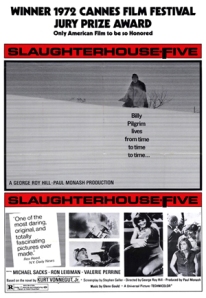★ ★ ★
OK, so I’ll be honest from the get go. The only reason I watched this was because it had two of my favorite actors in it: Peter O’ Toole and David Tennant (10th Doctor!). Furthermore, it was written and produced by Russell T. Davies, who was the head writer and show starter for the 2005 reboot of Doctor Who. Davies and Tennant’s working relationship actually began on this picture.
I’m sure most people are at least generally aware of who Giacomo Casanova was, if for nothing more than the fact that his name is a common term for lotharios the world over. Well, this movie is a loose adaptation of his life, pulling many overall generalized points from the history books, but embellishing them extensively for entertainment purposes. The narrative switches back and forth between old Casanova (Peter O’ Toole), who now serves as a librarian for an Italian nobleman, and young Casanova (David Tennant) as he makes his way in the world. A lonely chambermaid makes fast friends with the older Casanova, who has just finished writing his life’s tale. During her innocent stays in his chambers, he recounts the many adventures and loves found and lost during his lifetime, with a primary focus on one elusive woman: Henriette (Rose Byrne). Through the back and forth of the narrative, the life of Casanova is presented in only a way Russell T. Davies could come up with (i.e. extravagantly and at many times flamboyantly).
The “series” encompasses two one and a half hour segments, so it’s not really a movie, but not quite a mini-series. I really enjoyed the first segment and thought there were some very entertaining scenes, but the second installation was a bit of a let down and I found myself growing bored by the end. The fun of this film only seems to last so long, though the performances by O’ Toole and Tennant are a treat to watch. However, I may err on the side of caution here because I am biased, so I would even hesitate to give too much credit in that regard.
In short, a fun and exciting television “mini-series” that starts strong, but fizzles out some towards the end. If you are a Tennant or O’ Toole fan, I think you would have a greater chance of enjoying this sometimes disjointed flick, but even those who are not may find some interest here.


